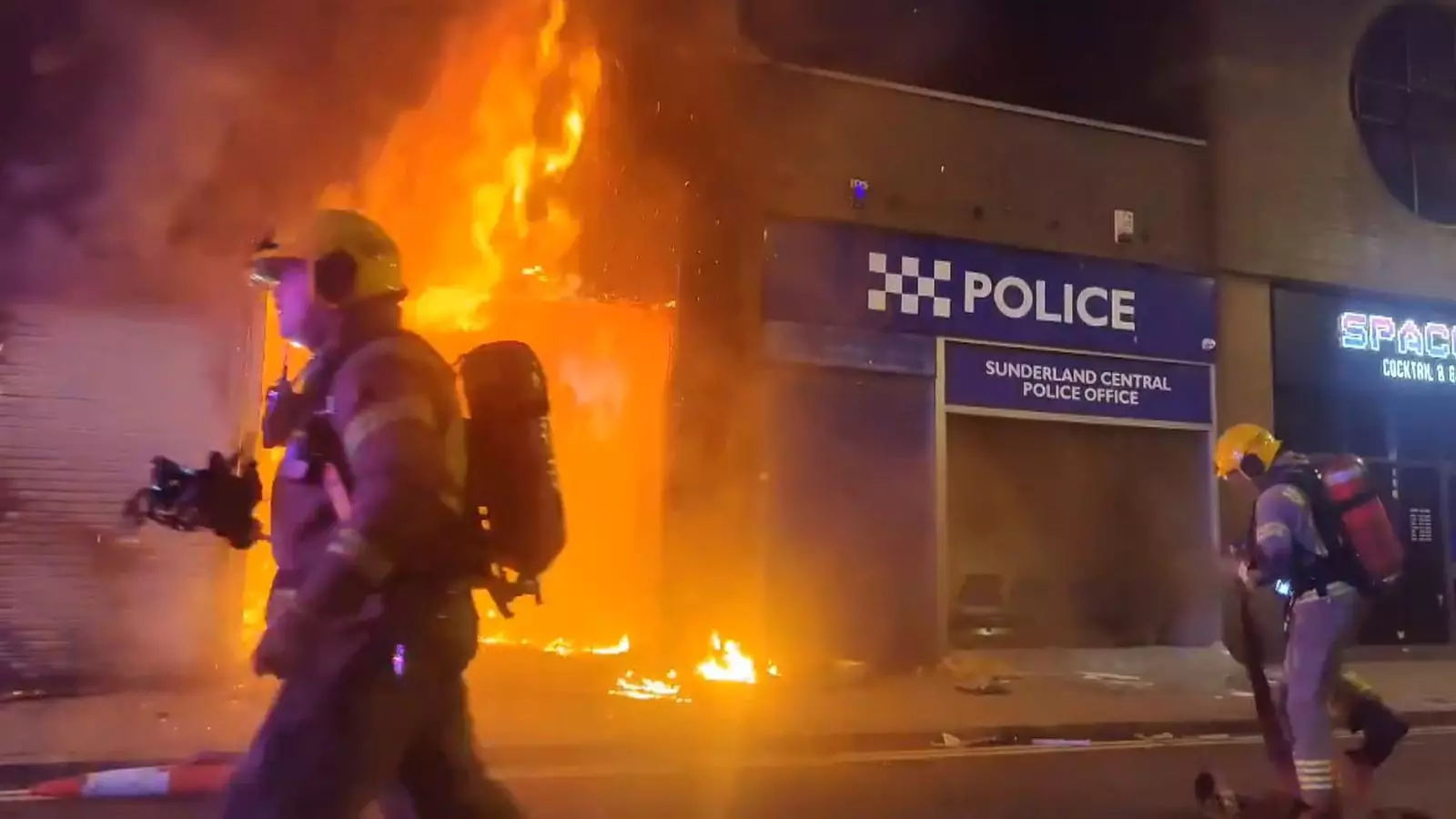The recent wave of protests in the UK, particularly in the aftermath of the Southport stabbings, has highlighted the growing tensions within society. Sky News analysis has revealed that almost 30 protests are scheduled to take place over the weekend, with many of them being organised by far-right activists. This surge in far-right demonstrations follows violent clashes earlier in the week, including incidents that resulted in multiple arrests. The prevalence of these events underscores the divisive and inflammatory nature of the current political climate in the UK.
The protests, as identified by Sky News, are rooted in a broad anti-multiculturalism, anti-Muslim, and anti-government agenda. It is evident that many of these events lack a single organiser, indicating a decentralized and grassroots nature. Furthermore, the circulation of online misinformation in the aftermath of the Southport stabbings has fueled the flames of unrest and mistrust among different communities. The spread of false narratives and distorted facts has contributed to the escalation of tensions and the proliferation of far-right sentiments.
In response to the escalating situation, British police chiefs have committed to deploying a significant number of officers to deter violence during the weekend protests. Additionally, there will be extra prosecutors on standby to swiftly charge individuals who engage in violent disorder. The coordinated efforts by law enforcement agencies aim to maintain public safety and order amid the growing unrest. Prime Minister Sir Keir Starmer has also announced a new “national” response to the disorder, emphasizing better coordination and cooperation among police forces across the country.
One of the flashpoints of the recent protests was in Sunderland, where a stand-off between police and protesters outside a mosque turned violent. Objects were thrown at officers, and a local station was set on fire, resulting in multiple arrests for various offences. The involvement of far-right groups, such as the English Defence League (EDL), has further exacerbated the situation. The actions and rhetoric of far-right activists, including calls for protests and displays of support for extremist figures, have stoked tensions and sowed discord within the community.
The events unfolding across the UK serve as a stark reminder of the challenges posed by rising extremism and intolerance. The need for a concerted and unified response to combat hate speech, violence, and discrimination is more pressing than ever. As political leaders and law enforcement agencies grapple with the repercussions of the recent protests, it is imperative for society as a whole to reflect on the underlying causes of social unrest and take proactive measures to promote inclusivity, tolerance, and solidarity. Only through collective action and mutual understanding can we build a more harmonious and resilient society for future generations.


Leave a Reply